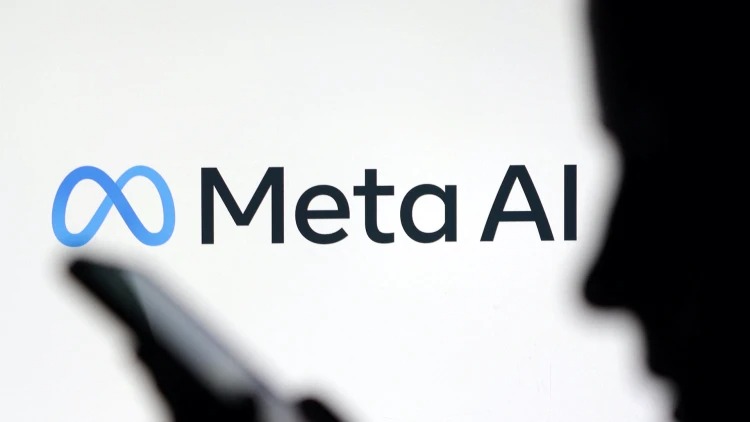- | 9:00 am
AI is already powering a new tech scene in the Middle East
From spicing up text to reinterpreting visuals, startups in the region are diving into generative AI

Want to make your own Disney movie? Easy. Want to reanimate Walt himself? That’s possible too. Advances in generative AI—in which machine learning creates infinite new images, text, voices, and videos in seconds—are set to revolutionize how all content is produced.
ChatGPT and DALLE-2, from San Francisco’s OpenAI and London-based Stability AI, have already shown the world how algorithms can interpret commands to synthesize conversations or complex images. In the Middle East, several startups are already harnessing these new tools to transform businesses and even create new jobs.
One of these is Israel’s AI21 Labs, whose AI-powered Wordtune assistant has helped improve the writing style of more than three million users or summarized long, complicated documents for them to read.
SPICING UP TEXT
A new Wordtune feature, Spices, acts as the user’s “co-writer,” enhancing text via a menu of cues. It can produce statistics to bolster arguments or “spice up” corporate brochures with jokes or quotes. Someone writing about Generative AI might feel it is appropriate to insert Mark Twain’s observation: “Writing is easy. All you have to do is cross out the wrong words.”
AI21 Labs was started by Amnon Shashua—co-founder of Mobileye, a pioneer in autonomous driving technologies, with Yoav Shoham, a professor emeritus of computer science at Stanford University, and serial tech entrepreneur Ori Goshen. The trio wanted to create a world-beating natural language processing (NLP) research lab that also launches commercially viable products.
“Wordtune can recognize 250,000 vocabulary items, including expressions and phrases,” says Goshen. “It supports 12 languages, including Arabic, Hebrew, Mandarin, and Russian, translating them into English and then rewriting the results. Future versions will support more languages”. He adds that Spices differs from ChatGPT, as it is “integrated into the whole writing process.”
According to Goshen: “We’re helping those who might not know the best way to express themselves. For professional writers, you could call it ‘a self-reflection tool’.”
REINTERPRETING VISUALS
If AI21 Labs wants to—as Goshen puts it—”reimagine the way humans read and write,” another Tel Aviv outfit, Bria, is about reinterpreting the visual. This company was launched to enable any business to make customizable images, in which everything from a person’s facial expression to their ethnicity can be modified with a click.
“Our platform means anyone without design or computer skills can find the right image and then modify it,” explains Bria’s co-founder and CEO, Yair Adato. “This could mean replacing or removing objects or adding and replacing people or backgrounds. It can generate images from scratch or modify existing visuals.”
Adato, previously the tech guru at Trax Image Recognition, a global firm that analyzes consumer behavior for corporations such as Coca-Cola, says he hopes to transform how all marketing and e-commerce teams work. “This is Photoshop on steroids,” he says. “No one has come up with a truly satisfactory word for these modified visuals. They are not really ‘images’ because ‘an image’ tells the truth. They are at best an ‘image of a story’”.
A neighboring startup might have come up with a helpful term, though. Last September, D-DID, an AI-driven creative media company, launched Creative Reality Studio, which enables users to make videos with audio from still images. Users can generate a hyper-real AI avatar, with both facial and upper body gestures, and add either their own or AI-generated scripts and voices.
While the company’s customers include marketing agencies, production outfits, social media platforms, e-learning platforms, and content creators of all sorts, its technical wizardry has also been used to reanimate long-dead loved ones more than 100 million times, thanks to a tie-up with genealogy service MyHeritage called “Deep Nostalgia.”
D-ID’s “creative reality” was also used to promote the Warner Bros. sci-fi film Reminiscence— viewers could insert themselves in the trailer—and a public service project that reanimated the faces of domestic abuse victims. D-ID also deals with New York’s Glimpse Group to build VR and AR apps.
Yaniv Levi, D-ID’s VP of product and customer success, says that Generative AI can save many businesses time and money while freeing employees from repetitive or mundane tasks.
“Over the next few months, however, we expect to see a big leap in quality as more data becomes available, which will lead to improved algorithms and more tailored software,” he says. “The more the technology outperforms human capabilities, the more disruptive it will become.”
Last month, Yanzo, the Dubai-based “text-based on-demand personal assistant” and embryonic super-app, became the first MENA company to fully integrate the tool into its concierge service. Users can send a request for a variety of services—organizing a birthday party, say, or booking a flight—communicating with Yanzo’s ChatGPT via the WhatsApp messenger platform.
According to Mohammed Jaffar, Yanzo’s co-founder and CEO, his company provided ChatGPT with more than 30,000 conversations to train the AI and learn Yanzo’s tone and way of speaking.
“The speed of the technology is a real game-changer,” says Jaffar. “We had always anticipated that AI would be central to scaling our long-term business model. Natural-sounding ChatGPT seamlessly connected to our backend system means we can greatly accelerate our expansion and capabilities.
Yanzo, says Jaffar, will expand into Saudi Arabia “within the next three months” as part of a regional rollout before launching “in select international places, such as London, New York, and Singapore.”
He says the company also hopes to launch a voice-activated service within months.
Jaffar believes that these lightning-fast AI assistants will not hasten the demise of human jobs. “At the moment, if our users’ requests are so complicated that ChatGPT cannot help them, the request is immediately passed to one of our human agents,” says Jaffar. “Of course, we’re hoping the user won’t know whether they are talking to a human or a bot.”
CONCERNS ABOUT MISUSE
Like Jaffar, Levi says that rather than replacing humans. This will create many new types of jobs, with decent “prompt engineers”—those skilled at crafting descriptions that throw up the desired results from Generative AI tools—likely to find themselves in high demand.
In the customer-facing roles industry, these prompters will help chatbots provide customers with the best responses, for example. In the content creation industry, there is a big need for creative people who can tell stories, dream up characters, or possess visual flair.
“In fact,” says Levi, “We are already seeing marketplaces where prompters are selling their prompts or are being hired to create custom ones.”
As the use of new technologies widens, concerns about misuse—which could involve distributing disinformation, IP theft, or privacy issues—are likely to skyrocket.
D-ID, originally a workaround tool for facial recognition software, and Bria block users from generating visuals containing controversial imagery and uploading images of celebrities or rights-protected works.
Words, arguably, can be even more problematic. “These days, determining what is a fact and what is merely an opinion is a major challenge for everyone,” says Goshen. “That’s why we cite the source for every information on Wordtune, and every quote is attributed or verified.”
Despite the challenges surrounding NLP technologies, the genie will certainly not return to the bottle. “I think eventually Generative AI is going to be at least as big as the mobile revolution and maybe as big as the internet,” says Goshen. “Technology has completely changed how we interact with computers. Suddenly, we can give them instructions, and they follow them.”







































